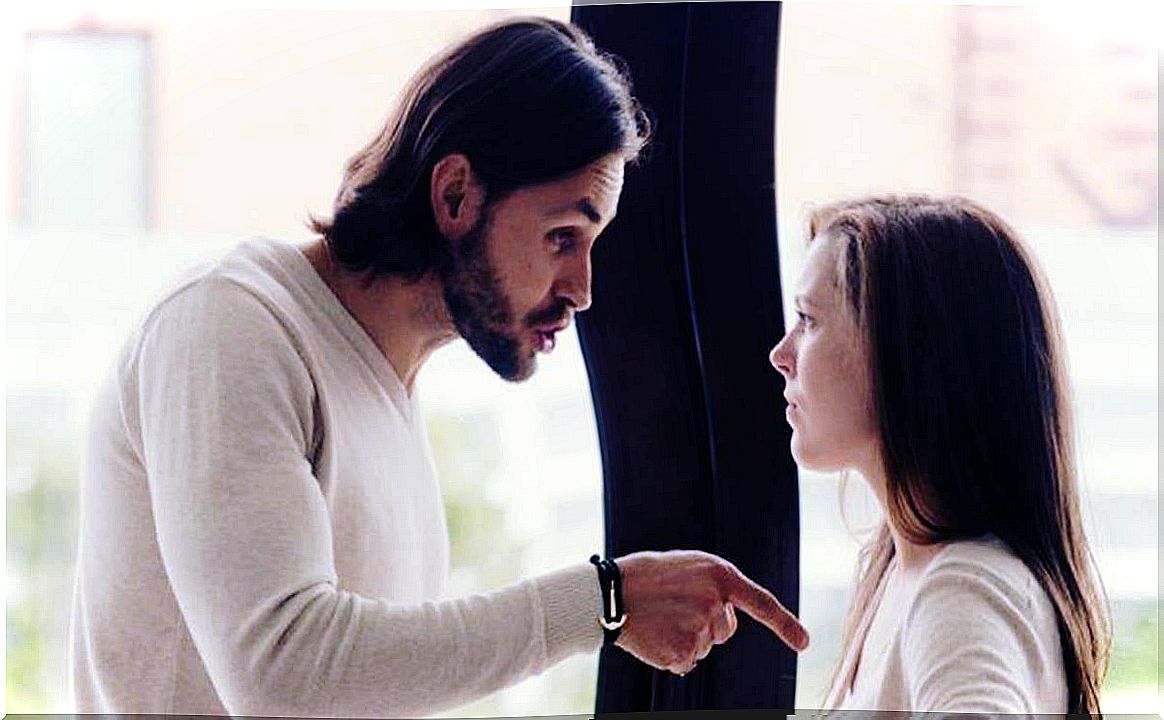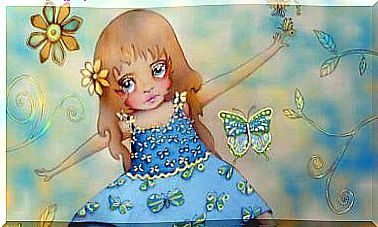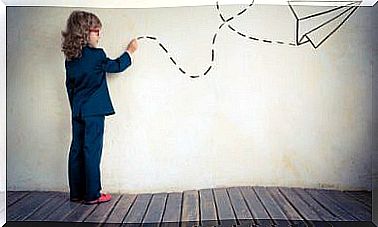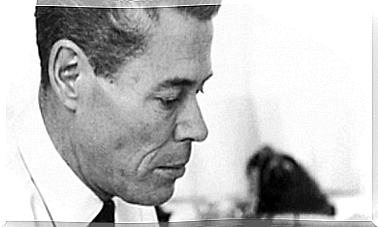Do I Accept My Partner Or Do I Want Him To Be What I Want Him To Be?

When ghosts are built on the couple, they stop being her and become a reflection of a fantasy, aspiration, desire or dream of ours, generally idealized. To be more precise, it happens to be a statue of Galatea that embodies a projection and not a reality.
The other stops being the other to become a provider of personal needs. It is then when we must differentiate the fact of being in love from the fact of being trapped, linked, hooked, trapped, imprisoned, in a couple’s bond.
Let’s see below to what extent we know how to accept our partner, and when we ignore this and only pretend that it is what we want.

You are like that and I am not. Give me what i want
Often lovers can play the game of wanting to change the other. This is a trap that is difficult to get out of, especially when you are convinced that there really is love.
A super orderly and methodical partner can make the other seem like they have an attention deficit and on top of that, pretend to be more and more like them. The same can happen when one is extremely seductive and effusive in social relationships and the other is obsessive, jealous and insecure. Also when one is affectionate and demonstrative and the other is literally a cactus.
When attention is paid to the contrast between one and the other, and is valued superficially, thoughts such as “ If I am like this… why can’t you be this way so that I can be happy. Why don’t you change this so that I can… If you were this, I would be… Oh, if only you were, you did… How beautiful it would all be ”.
These types of questions make lovers get hooked on a dynamic that feeds each other. And the differences, instead of being understood as a complementary pair, are presented as two people who criticize the characteristics of the other.
Explanations or justifications will not be valid, since all are developed on the basis of the assembly of such personality characteristics. Both are trapped, imprisoned in the perimeter of the couple, in which their changes are redundant and ensure non-change or, more precisely, in modifications that do not question the rules of the game they play.
In order to produce a change, it is necessary to make a total or partial modification of the rules of that game to provoke the growth of a new structure.
Although one is in relation to (which indicates to us who we are in the interaction), the basic personality characteristics, the personality and relational style of each one, the beliefs and personal values, make the various relationships stand out these particularities to a greater or lesser extent.

Wanting to change the other, a dynamic that can be endless
When the members of the couple get stuck in the game of wanting to change the other, according to personal parameters and desires , they try to make the partner accommodate their own expectations. These are neither more nor less than the desires and ideals that are intended to be deposited in the other.
It will be a fight without quarter and it will be fruitless for both:
- For the plaintiff because the other can never conform to such idealized profiles.
- For the defendant due to the devaluation that overwhelms him as well as the lack of recognition for who he really is. In addition, due to the wear and tear produced by the permanent demand to be someone who is not.
Later, when the lovers separate, in the consultation reflections such as: “I spent many years trying to change my partner, make him be someone different… but it was not possible. The other must be taken as it is. Accept it or separate ”.
Although you can try to change the other person, as long as the demands are healthy for the relationship, the issue is to analyze which are the ways that are used for it, where the conciliation point is located, what is reasonable and what is a idealization out of place …
In some cases, what is claimed is the appearance of certain characteristics that were in the relationship and that are currently lost in time. In those cases, what the couple should review is what happened to those behaviors that were productive for the relationship and that dissolved over the years.
In other cases, one demands from the other, or both demand from each other, that the partner be someone who never was. More precisely, that they develop behaviors or have attitudes that are outside their personality range. These games, which constitute a trap for the relationship, cause one or each of the members to be absolutely devalued by the other, because the gaze is directed at someone who is not the real and concrete other.
So, it is not only me who changed over the years, my perception changed, my tastes, beliefs, behaviors, values changed … and therefore my choice changed. The other also generated his own change during that time. The result: neither I am the one who chose you nor you are the one I chose.

Accept the other
Everything we have discussed tells us that we do not have to stop proposing changes in attitudes to improve the relationship. What we have to stop doing is pretending that the other is someone else, to make radical, utopian changes. It must be clear that there are relational elements that are more accessible to modification than others.
You have to understand that the other is the way he or she is, and you cannot impose a radical change on that just because we want it that way. We can ask – not demand – rectifications of attitudes that support the change or, at least, try to modify the relational dynamics, and with it, the particularities of both spouses.
Frustration and relational failure in an unequal partner arise to the extent that a love was built with an idealizing component such that it does not allow to see the other as he really is, that is, with his positive and negative aspects.
The more one hopes to find the other ideal (the one I want it to be), the more exposure there will be to colliding with what the other person is really like. This can destroy the bond and give rise to devaluation, denigration and aggression.
That’s when they appear feelings of disenchantment word so significantly expresses the des-idealization of the partner, thus, the greater enchantment, biggest disappointment.
To get out of these games, it is necessary to make new couple contracts. Work to improve, and often resort to therapy, in order for a third party to restructure the bond.
An exercise to improve your relationship
A reflective exercise that generally gives good results is for each of the members to write in two columns of a blank sheet, what they love and what they like and what bothers them about the other. Then, each one will read to the other what they have written, in turns and without the right to reply, starting with what they like least and continuing with what they like the most.
Each is then asked to exchange the list and to choose (individually) something that they feel they can rectify about what the other is upset or dislikes. Thus, both will have a task to fulfill. Within ten days, each member of the couple will comment on whether they noticed the other’s change.
Everything starts from the basis of accepting the other, understanding that the other is as it is with its virtues and defects, that we can propose changes to grow, with the aim of achieving happiness in the couple, but always from the council and respect.









